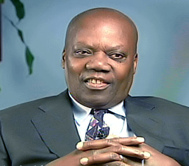By Reginald Stuart
One of the nation’s leading behind-the-scenes advocates for Historically Black Colleges and Universities in recent times, passed this fall, leaving a path for successors to follow in the years to come.
Hugh C. Burroughs, a long-time New York City philanthropic ambassador for the now defunct John Hay Whitney Foundation, helped steer thousands of dollars for research into the funding of state-controlled Black Higher education and to grants to supplement post-graduate studies for hundreds of aspiring higher education leaders.
Burroughs, son of a shoemaker and shoe repairman and a homemaker in Trinidad & Tobago was the eldest of five children. He grew up in New York City where he went to high school and graduate from Columbia University in New York City. Burroughs then worked as an assistant dean of students at Columbia and then went on to work in public service at Columbia University other places.
The Whitney Foundation aid was considered phenomenal during its pioneering decades—the 1960’s through 1980’s—yet, has been overshadowed by the plethora of diversity grants in more recent years lead by billionaires ground shaking funds to boost HBCU’s.
As programs officer for the Whitney Foundation, Burroughs worked from a tiny office in the Time-Life Building on Rockefeller Center to back the NAACP Legal Defense and Education Fund in publishing “Black Perspectives on State Controlled High Education’ in half a dozen Southern states.
Thousands of the handheld booklets were spread across the region in the 1970’s to enlighten citizens on the widespread funding disparities between historically white and black institutions across the South.
Black Perspectives, printed for nationwide distribution by Nashville’s Hemphill Press, on Jefferson Street, before being bulldozed for the I-65 Interstate Highway, was cited by state and local lawmakers, educators and HBCU advocates as factual evidence of the disparities. It continues to be cited today.
The findings were echoed earlier this year by the US. Department of Education when it urged Tennessee and several other states to pay hundreds of millions to its state-owned federal land grant institutions that had been denied them when annual federal education funds to states were divided.
After his stint at the Whitney Foundation, Burroughs was then hired by the Woodrow Wilson Foundation as associate director of the Martin Luther King, Jr. Fellowship Program.
Burroughs continued to pursue his career ambitions as he moved across the nation where he began as a program officer at the William and Flora Hewlett Foundation. While working there,
Burrough created a series of grants that encouraged the development of the City of East Palo Alto, California. He then served a stop as vice president of the Henry Kaiser Family Foundation before going to work for the David & Lucile Packard Foundation.
In 2000, the man behind Motown music, Berry Gordy, Jr. hired Burroughs to help organize and run the Berry Gordy Family Foundation. That was one of his last behind the scenes magic tricks. He later decided to work part-time as a foundation consultant.
Burroughs spent much of his final time doing what he had been doing from the start, said family members. He helped community groups “build and achieve successful strategies to uplift communities,” said a family spokesperson. In memory if his passing this fall after more than 20 years of community service, his peers at the San Carlos Tennis Club purchased a park bench in his memory to honor him, the family said. He was 83 years old.


